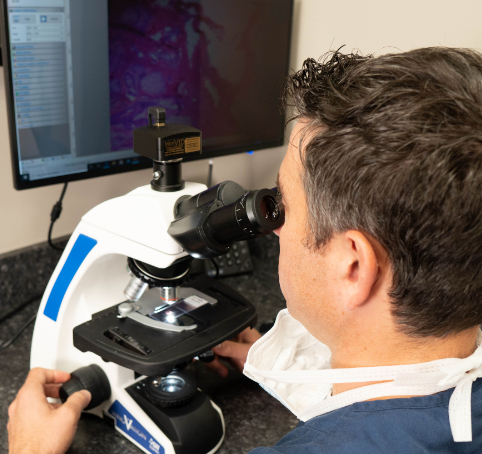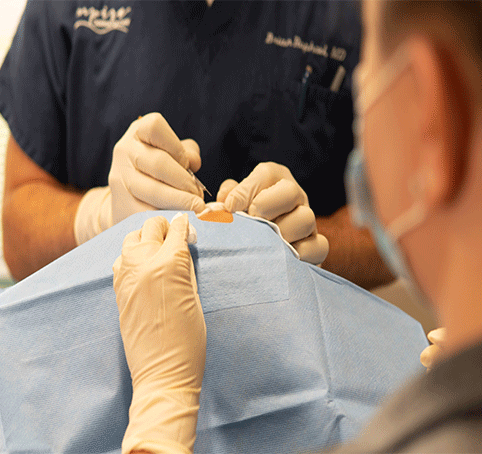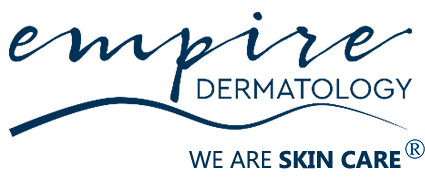
Why Mohs Surgery?
Mohs surgery is now the standard of care for certain skin cancers on the head and neck. It is a precise technique that provides the highest cure rate out of any current treatment option while sparing as much healthy tissue as possible. After completing Mohs fellowships, our Mohs surgeons have the ability to process the excised skin, evaluate the skin cancer under the microscope and examine 100% of the margins to ensure complete removal of the skin cancer.
When should you have
Mohs surgery?
When should you have
Mohs surgery?
Mohs surgery is an excellent choice for the treatment of most primary skin cancers. When the skin cancer:
Develops on areas where cosmetic appearance and function are important
Has recurred after previous treatments
Is large
Has edges that are ill defined
Grows rapidly
What should you know about the
day of your surgery:
Surgery is performed under local anesthesia and there is no general anesthesia
It may be a good to bring a friend or family member for support. If you are having surgery around the eye, nose you may need to bring someone as a driver since the post-operative bandage may obstruct your view.
Since Mohs ensure that 100% of the margins are clear of skin cancer, the procedure time can be unpredictable. Therefore, please plan for the appointment to take half of the day. However, on average the procedure often takes between 2-3 hours.
What supplies will I need after
the surgery:
You will be leaving the office with a bandage. This will be left on for 24 hours. Afterwards we recommend that you remove the bandage and gently wash the surgical area with soap and water. To download complete post-care instructions, please click here. The main supplies you will need are:
Vaseline
Band-Aids
Tylenol
Do not use antibiotic ointment (this can cause reactions around the surgical site)
Skin Cancer
Skin cancer is serious. The three most common skin cancers that make up almost 99 percent of all skin cancers include basal cell carcinoma, squamous cell carcinoma and melanoma. Basal cell carcinoma is the most common cancer in the United States. Although melanoma makes up only 4 percent of skin cancers, it causes about 75 percent of skin cancer deaths.
If you’ve had a blistering sunburn at any point in your life, your chances for skin cancer, including melanoma, increases dramatically.
There are a variety of treatment options for these skin cancers including topical medications, electrodessication and cautery (also known as scrape and burn), photodynamic therapy (PDT), cryotherapy, standard excision, radiation, systemic medications and Mohs surgery, a specialty at Empire Dermatology. The skin cancer experts at Empire Dermatology can help determine which treatment option is best for you.
You can schedule a skin check now at Empire Dermatology. We are accepting new patients.


